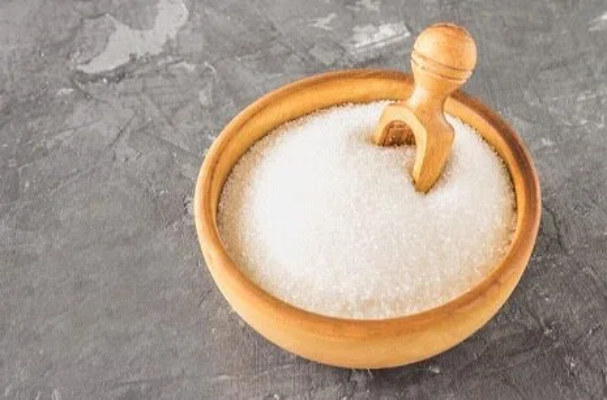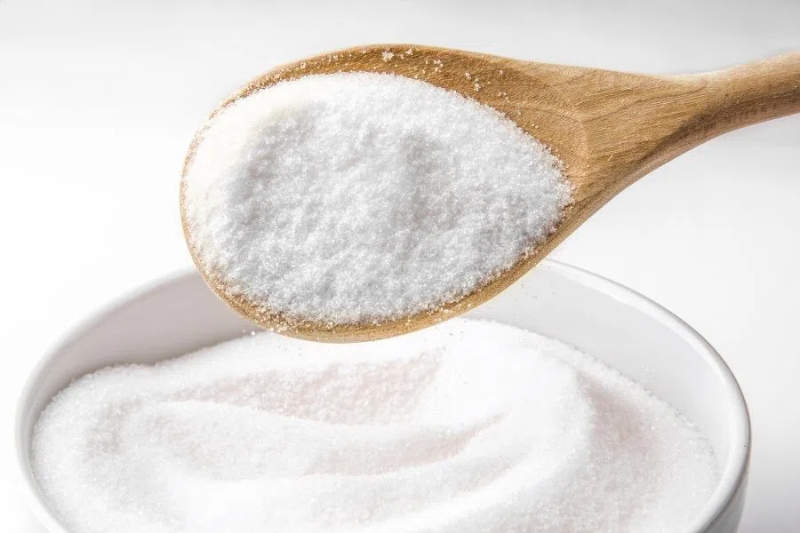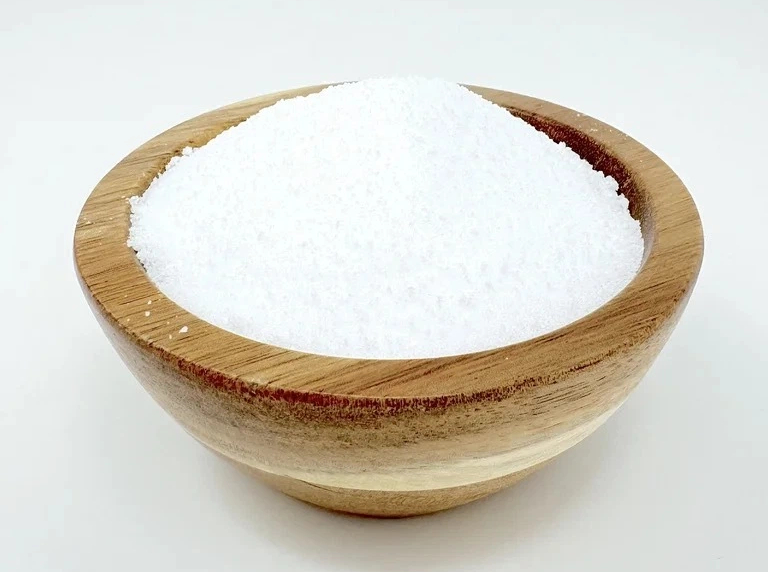Views: 222 Author: Sara Publish Time: 2025-10-31 Origin: Site








Content Menu
● Why maltitol matters in health-focused formulations
● Quality-centric supply chains
● Product forms and specifications
● Evaluating suppliers: practical criteria
● Forms of collaboration with overseas manufacturers
● Top considerations for blended sweeteners and OEM/ODM
● Applications across industries
● Quality and certifications to look for
● Case studies and market context
● Quality controls in practice
● Sourcing checklist for overseas buyers
● Supplier engagement and negotiation
● FAQ
>> 1. What is maltitol and why is it used in health-focused products?
>> 2. What forms of maltitol are commonly available from Indian manufacturers?
>> 3. What certifications should overseas buyers look for when sourcing maltitol from India?
>> 4. How can maltitol suppliers assist with OEM/ODM and blended-sweetener development?
>> 5. What factors influence lead times and pricing when sourcing maltitol in India?
India's position as a hub for natural sweeteners, functional polyols, and dietary fibers has strengthened in recent years, driven by growing demand from global food, beverage, and healthcare sectors for health-oriented solutions. Maltitol, as a sugar alcohol with lower caloric contribution and dental-friendly properties, plays a pivotal role in blended-sweetener systems that support sugar-reduction targets without compromising taste, texture, or stability. For overseas manufacturers and contract partners, India offers a broad ecosystem of maltitol manufacturers and suppliers, ranging from large-scale polyol producers to specialized traders and contract manufacturers capable of tolling, private-label production, and OEM/ODM development. This article surveys the Maltitol Manufacturers and Suppliers landscape in India, explains product forms and quality benchmarks, outlines practical sourcing considerations for international buyers, and provide actionable guidance for establishing successful collaborations.

Maltitol belongs to the polyol family and is valued for delivering sweetness with reduced energy contribution, lower glycemic impact, and tooth-friendly characteristics compared with traditional sugars. In health-oriented foods and medical-nutrition products, maltitol enables:
- Calorie-conscious formulation for confectionery, bakery, dairy, and beverages, helping brands meet consumer demand for healthier choices.
- Stable texture and mouthfeel in sugar-reduced products, supporting product quality without relying on high-intensity sweeteners that may cause off-notes.
- Compatibility with other polyols and natural sweeteners to create blended-sweetener systems that achieve desired sweetness profiles, aftertaste, and synergetic functional properties.
- Suitable excipient roles in nutraceutical tablets and certain pharmaceutical applications, where precise purity and consistent particle size matter.
Leading maltitol suppliers in India typically emphasize robust quality management, traceability, and compliance with international food and pharmaceutical standards. Common certifications you should expect or request include ISO 9001, HACCP, and, where applicable, Kosher or Halal certifications. For pharmaceutical-grade uses, suppliers may offer USP, EP, or FCC specifications and batch-specific COAs (certificate of analysis). Emphasizing these credentials helps overseas buyers mitigate risk and ensures consistent performance across batches.
Indian maltitol suppliers generally offer a range of product forms to meet diverse application needs:
- Maltitol powder: Fine or medium particle sizes suitable for confectionery, bakery, dairy, and beverages. Typical specifications cover purity, moisture content, and flavor impact.
- Maltitol syrup: Syrup forms with varying viscosity and solids content, used in beverages, fillings, and liquid formulations where mouthfeel and sweetness distribution are critical.
- Blended sweeteners: Custom formulations that combine maltitol with other polyols or natural sweeteners to optimize sweetness level, texture, and caloriс content.
- Tablet-ready blends: Maltitol-based excipients and carrier blends used in nutraceutical and pharmaceutical tablet formulations, often including binders, disintegrants, and lubricants.
- Private-label and toll manufacturing options: Opportunities to co-create customized blends and finished products under a buyer's brand, with potential for scale-up and production outsourcing.
When selecting a maltitol partner in India, consider:
- Product form availability and specifications: Confirm the exact grade (food vs pharmaceutical), purity, moisture, and particle size, along with required certifications (USP/EP/FCC as applicable).
- Capacity and flexibility: Assess monthly/annual production capacity, lead times, and the ability to accommodate blended-sweetener development or toll manufacturing under long-term contracts.
- Quality assurance: Review QA/QC processes, batch traceability, sampling policies, and third-party testing options to verify purity and safety.
- Documentation and support: Demand COA, MSDS/SDS, allergen statements, and stability data to accompany shipments, plus technical support for formulation and scale-up.
- Supply chain reliability: Evaluate logistics terms (FOB, CIF), minimum order quantities, packaging options, and contingency plans for disruptions.
- Customer collaboration: Look for value-added services such as formulation development, regulatory guidance for target markets, and private-label packaging capabilities.
- Intellectual property considerations: Ensure clarity on confidential formulations or blended-sweetener recipes and safeguard proprietary processes through appropriate agreements.
- Direct procurement from maltitol manufacturers: Enables tighter control over specifications and pricing, with direct access to batch-level data.
- Distributor partnerships with value-added services: Distributors may offer toll manufacturing, formulation support, and faster market entry through established logistics networks.
- Long-term supply agreements and co-development: Jointly develop tailored maltitol-based blends, tablet formulations, or private-label solutions, ensuring a stable supply chain and ongoing technical support.

- Tailored blends: Blending maltitol with other polyols (e.g., sorbitol, xylitol) or natural sweeteners (e.g., stevia extracts) to achieve specific sweetness profiles, aftertaste, and texture, while maintaining regulatory compliance.
- Texture and mouthfeel: Maltitol's impact on body and melt-in-the-mouth properties is critical in candies, chocolates, baked goods, and creamy dairy alternatives.
- Starch and excipient compatibility: When used in tablet formulations, maltitol blends must be compatible with binders and disintegrants to ensure proper disintegration time and drug release profiles.
- Shelf-life and storage: Stability data should cover a range of humidity and temperature conditions, particularly for blends and tablet formulations that may experience moisture ingress.
- Regulatory readiness: Suppliers should provide documentation compatible with target markets (FDA/EFSA, CFDA, etc.), including COA and packaging declarations appropriate for cross-border shipments.
- Food and beverage: Reduced-sugar confections, sugar-reduced beverages, dairy desserts, bakery products, and spreadable goods benefit from maltitol's functional properties without sacrificing sensory appeal.
- Healthcare and medical nutrition: Medical foods, pediatric formulations, and oral nutrition supplements leverage maltitol for improved tolerability and caloric moderation.
- Pharmaceuticals: Certain formulations utilize maltitol as a sugar alcohol excipient or filler, requiring medical-grade specifications and controlled viscosity or flow properties.
- Cosmetic and personal care adjuncts: In some niche formulations, maltitol derivatives may find use as humectants or carriers within specialized products, though this is less common than food/pharma applications.
- Product-grade alignment: Ensure GMP-compliant manufacturing practices, alongside traceability systems that allow batch-level verification.
- Certification scope: ISO 9001, HACCP, and any customer-specific quality certifications; Kosher/Halal certifications where required by the buyer's market.
- Documentation suite: CoA, MSDS/SDS, product specifications, stability data, and any test results from accredited laboratories.
- Labeling and packaging compliance: Proper allergen declarations, storage instructions, and regulatory labeling aligned with import jurisdictions.
- Lead times can vary based on form (powder vs syrup), purity, packaging, and the supplier's production schedule. Longer lead times are common for customized blends or tablet-ready formulations.
- Shipping terms typically include FOB or CIF arrangements, with options for private-label packaging and carton/bulk configurations. Buyers should factor in customs clearance, duties, and potential regulatory fees in their total landed cost.
- India's maltitol ecosystem includes established polyol manufacturers and traders who leverage broad regional supply chains to serve global customers. The market benefits from integrated agricultural and processing capabilities, enabling consistent supply for large-volume requirements as well as bespoke formulation needs.
- Industry reports indicate steady growth trajectories for maltitol and related polyols, driven by demand for sugar alternatives in confectionery, bakery, beverages, and nutraceuticals. The evolving regulatory landscape and emphasis on clean-label formulations further shape supplier strategies and product development priorities.
- Routine laboratory testing for purity, moisture, and impurity profiles ensures that maltitol products meet contract specifications. Independent third-party testing adds an extra layer of confidence for overseas buyers.
- On-site QC labs often perform in-process checks during blending, particularly for customized sweetener systems requiring precise sweetness equivalence, mouthfeel, and storage stability.
- Define target product form, grade, and purity range; specify required certifications and testing protocols.
- Request COA/MSDS/SDS, batch release documentation, and stability data for the exact lot under consideration.
- Confirm manufacturing capacity, lead times, and minimum order quantities; discuss toll manufacturing or private-label options if needed.
- Review packaging formats, labeling compliance, and storage conditions suitable for the destination market.
- Establish terms for long-term supply agreements, including pricing mechanisms, change-of-supply clauses, and anti-counterfeit controls.
- Seek technical support for formulation development and regulatory alignment in customer markets.
- Prepare a concise specification sheet detailing product grade, form, purity, moisture, particle size, and packaging requirements, plus the target markets and intended applications.
- Use a structured RFI/RFP approach to compare supplier capabilities, including certifications, QA practices, and value-added services (toll manufacturing, private-label packaging, and formulation support).
- Negotiate favorable terms for long-term collaboration, including price protection clauses, volume rebates, and product development milestones.
India's Maltitol Manufacturers and Suppliers landscape offers overseas manufacturers a robust and diverse set of options for blended-sweetener development, tablet production, and OEM/ODM services. By focusing on product forms, quality certifications, lead times, and collaborative models, buyers can build health-focused sweetener solutions that align with natural sweeteners, dietary fibers, and polyol strategies while achieving reliable supply chains and regulatory compliance. The ecosystem continues to evolve, with manufacturers expanding capacity, enhancing traceability, and delivering customized solutions that meet the rising demand for sugar-reduced products across food, beverage, and healthcare industries.

Maltitol is a sugar alcohol that provides sweetening with reduced caloric impact and dental-friendly properties, making it suitable for sugar-reduced foods, beverages, and nutraceuticals. It can be part of blended-sweetener systems to achieve desired taste and texture.
Powder, syrup, and blended sweeteners are commonly available, along with tablet-ready blends for nutraceuticals and pharmaceutical excipients.
Look for USP/EP/FCC grades where applicable, ISO/HACCP certifications, and batch-specific COA/MSDS/SDS documentation; Kosher/Halal certificates may be relevant depending on the target market.
Suppliers often provide formulation support, private-label packaging, toll manufacturing, and long-term collaboration opportunities to create customized sweetener systems tailored to specific product requirements.
Lead times depend on production form, capacity, and order size; pricing reflects purity, certifications, packaging, and shipping terms such as FOB or CIF, plus any tolling or development fees.
[1](https://market.us/report/maltitol-market/)
[2](https://www.futuremarketinsights.com/reports/maltitlol-market)
[3](https://www.trademo.com/india/buyers/maltitol)
[4](https://www.ambujagroup.com/maltitol-syrup)
[5](https://www.fortunebusinessinsights.com/maltitol-market-109451)
[6](https://www.imarcgroup.com/india-polyol-sweeteners-market)
[7](https://www.databridgemarketresearch.com/reports/global-maltitol-market)
[8](https://www.pharmacompass.com/listed-active-pharmaceutical-ingredients/maltitol)
[9](https://www.marketreportanalytics.com/reports/maltitol-liquid-261304)
[10](https://www.verifiedmarketresearch.com/product/maltitol-market/)
